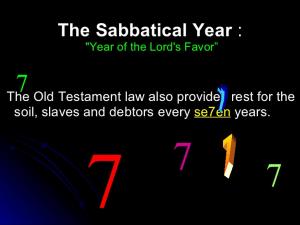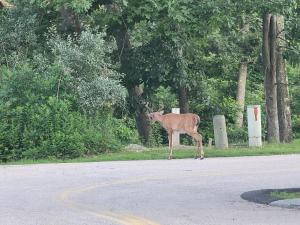 By all measures, this has already been a successful sabbatical (there are still two more months to go). I have a full draft of both of my book projects completed; both are close to being ready for preliminary feelers to be sent out to possible publishers. I have also been able to continue sending out three posts per week on this blog without interruption while writing two books, often focusing on whatever portion of one of the books I was working on at the time. Along with several house projects and a two-year-old corgi who thinks I’m at home a lot more these days just to entertain her, there hasn’t been a lot of “Sabbath” during this sabbatical. Yet.
By all measures, this has already been a successful sabbatical (there are still two more months to go). I have a full draft of both of my book projects completed; both are close to being ready for preliminary feelers to be sent out to possible publishers. I have also been able to continue sending out three posts per week on this blog without interruption while writing two books, often focusing on whatever portion of one of the books I was working on at the time. Along with several house projects and a two-year-old corgi who thinks I’m at home a lot more these days just to entertain her, there hasn’t been a lot of “Sabbath” during this sabbatical. Yet.
Jeanne occasionally reminds me that sabbatical should be about more than simply redirecting my usual Type-A work energies from the classroom to writing—the purpose of sabbatical, first and foremost, is retooling, rebooting, and rest. I’m very good at writing about these things (there’s a whole chapter about it in one of my books-to-be), but lousy at actually doing it. As I am simultaneously trying to write, listening to a podcast, checking my emails, and throwing the ball that Bovina brought me for the hundredth time this hour, I am reminded of my friend Steve’s definition of “multi-tasking”—“doing several things poorly at the same time.”
The only time I ever manage to break these patterns is when I deliberately pay money to go somewhere on retreat. In the summer of 2022 I spent several days on retreat at Enders Island in Mystic, Connecticut; the benefits of that retreat were valuable enough to prompt my scheduling a similar stay for the week after Thanksgiving later this month. Immediately I started planning—by that time I’ll have the full text of one of my books back from a friend who’s had it for a few weeks, I can decide whether I need a literary agent for one of the books and can start looking for a publisher for the other, I can read the next installment in the Icelandic mystery series I’m in the middle of . . . you get the picture.
Fortunately I decided to take a look at the two or three essays that I wrote while on retreat in July 2022—one of them slapped me upside the head. Here, without editing or updating, is what I supposedly learned on retreat last time. Clearly I need to relearn it.
THE SHY DEER-SOUL WITHIN ME
As the deer longs for streams of water, so my soul longs for you, O God Psalm 42:1
I met a deer the other morning, the first deer I’ve met in a long time. I was on my usual early morning bike ride (the closest thing I have to a spiritual practice these days), came down an unfamiliar hill in an unfamiliar neighborhood, and there he was standing in the middle of the road.  I stopped far enough away to get my phone out of my pocket without scaring him and took a very amateurish picture—at least I got one. “Looking good, dude,” I said as he sauntered off into someone’s back yard. I don’t know a whole lot about deer, but I do know that deer with horns are dudes.
I stopped far enough away to get my phone out of my pocket without scaring him and took a very amateurish picture—at least I got one. “Looking good, dude,” I said as he sauntered off into someone’s back yard. I don’t know a whole lot about deer, but I do know that deer with horns are dudes.
The hill and neighborhood where I met the deer are unfamiliar because I am away on retreat for three days. Jeanne started mentioning a couple of months ago that she thought I should find an appropriate location and go away on silent retreat for a few days. I’m not sure what prompted this suggestion. Maybe it was my wandering around the house aimlessly and sighing a lot. Maybe it was that although a silent retreat used to be a regular annual event for me, I had not been on one since pre-pandemic in 2019. Maybe it was that my June began with a serious bicycle crash and ended with a not-as-serious-but-very-annoying fender bender in the car.
I listened to her and ended up scheduling a silent retreat at St. Edmund’s Retreat Center on Enders Island in Connecticut, just an hour away from home. Even though I would only be on site for 72 hours, I packed so many books in my bookbag that it was heavier than I ever recall it being in the ten years or so that it has been my man purse. I had a specific reason for taking each book with me, except the last one. Five minutes before I left the house, I walked past the part of our library bookshelf where Barbara Brown Taylor’s books hang out. I grabbed An Altar in the World—a decision I regretted while unpacking my bag when I remembered that I had taken this very book with me on my last retreat three years ago. I even reposted an essay I wrote on that retreat inspired by a chapter in this book on this blog a couple of weeks ago.
But as Big Bird would have it, An Altar in the World is exactly the book I needed to take with me. I know that I’ve read it carefully before because there is so much marking and underlining in it. But I’m three years older and a pandemic has happened since my first time through—this time it read as if it had been written precisely for me at this point in my life.
One of the things I expected to be thinking about and considering while on retreat was a couple of short academic essays that are due to the editor by September 1. I am one of three dozen contributors to the forthcoming The Bloomsbury Handbook of Simone Weil; I have been assigned two important topics in Weil’s work on which to write 3000-word essays for this handbook. One of these topics is “attention.” This should be an easy one.
I introduce students to Simone Weil through one of her seminal essays that develops an understanding of attention, the cultivated capacity to see the reality of things other than oneself and to engage with them without the distorting lenses and framework of the self. I’ve used this aspect of Weil in the classroom for twenty-five years, I frequently say that her meditations on attentiveness have changed my life, and I included an chapter on attention in my 2017 book Freelance Christianity: Philosophy, Faith, and the Real World (shameless plug). My commissioned essay should write itself.
Chapter Two in An Altar in the World is “The Practice of Paying Attention”; Barbara Brown Taylor even discusses Simone Weil and attention in a couple of the chapter’s middle pages. Taylor introduces attentiveness through its related virtue, reverence. Reverence, as Taylor describes it, is the recognition that “it’s not all about me.”
The exercise of reverence generally includes knowing your rank in the overall scheme of things . . . Reverence is the recognition of something greater than the self—something that is beyond human creation or control, that transcends full human understanding.
Connecting reverence and attention makes sense, since both involve de-centering and a clear awareness of what is other than me. When Anne Lamott sayS that the best definition for “God” is “not me,” she’s plugging into the importance of reverence. Attentiveness becomes more possible if one is also cultivating the virtue of reverence. I even claimed that my New Year’s resolution a few years ago was to become a more reverent person (don’t ask).
Taylor ends her chapter on attention and reverence this way:
The practice of paying attention is as simple as looking twice at people and things you might just as easily ignore. To see takes time, like having a friend takes time. It is as simple as turning off the television to learn the song of a single bird. Why should anyone do such things? I cannot imagine—unless one is weary of crossing days off the calendar with no sense of what makes the last day different from the next.
I had made it almost all the way through the chapter nodding my head in agreement thinking “you’re right Barbara—you understand what attention is (and so do I).” But this final paragraph was a slap upside my head. Because “crossing days off the calendar with no sense of what makes the last day different from the next” is pretty much how my life has been going for the last couple of months (and undoubtedly longer).
My days this summer have begun with walking Bovina for a mile, then taking my daily bike ride (20 miles is the goal). After returning home, my day is pretty much a matter of doing several things in a haphazard and half-assed way with little attentiveness and no reverence. At some point in the afternoon, I decide that it’s time for a beer or two. Cap it off with eating dinner and spending the evening in front of the television, then going to bed until the next day. Lather, rinse, repeat. Barbara Brown Taylor just nailed me to the wall—I am undoubtedly the least reverent and most inattentive person I know. It took me 36 hours of retreat silence to realize it.
In a late chapter in An Altar in the World, Taylor describes the reaction of her “Introduction to World Religions” students when, at a Hindu vespers service, everyone sat quietly in silence on cushions for close to an hour after a few opening verses.
[They were] startled to hear the sound of their own heartbeats for the first time. They had no idea there was so much space inside of them. No one ever taught them how to hold still long enough for the shy deer-soul inside of them to step into the clearing and speak.
The sad thing is that I do know about that space inside of me. I have met and embraced that “shy deer-soul,” and it changed my life. And at times I’ve incorporated it into my daily routine in fruitful and energizing ways. But not recently.
Maybe it is not “sad,” but simply “human” that it is so easy to allow that space to get crusted over with stuff. When I read Taylor’s description of the “shy deer-soul” twenty-four hours after I met the deer on my bike ride, I realized that the deer dude was a reminder. “Where have you been? I’ve been waiting for you to hang out, be at peace, and get centered. You don’t have to go on retreat to find me. But I’m glad you did.”
The Lord’s acts of mercy indeed do not end, for His compassions do not fail. They are new every morning; great is Your faithfulness. Lamentations 3: 22-23












